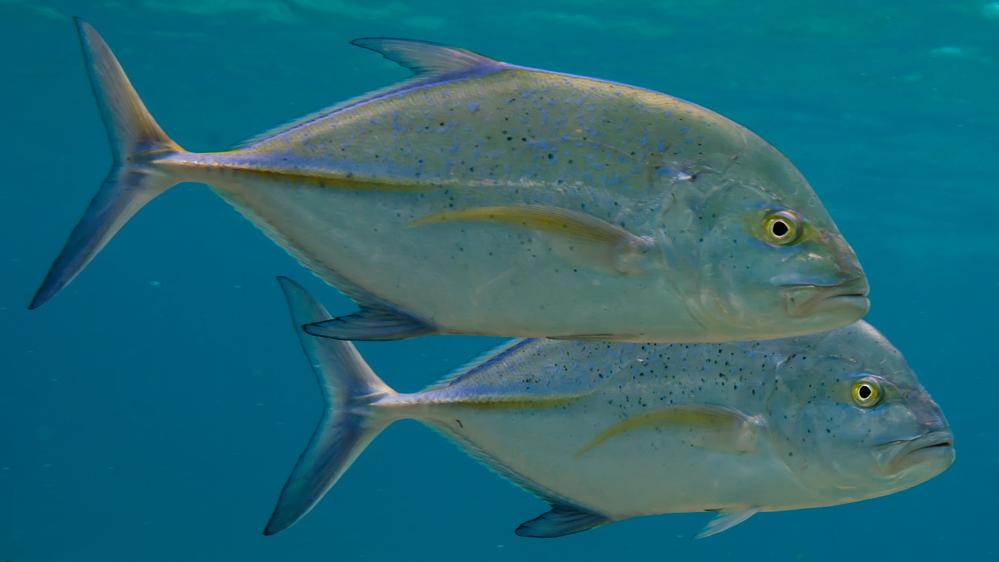The Hawaiian population of Bluefin Trevally has been threatened by rapid decimation due to overfishing.
When most Americans were asleep on Wednesday night, President Barack Obama was speaking to a small group of domestic and foreign scientists and dignitaries in Hawaii.
“Welcome to Hawaii. Aloha!” Obama said beginning his brief speech. “It’s not often I get to welcome folks to my home state.”
The president spoke on the eve of one of the world’s largest gatherings of environmental policy makers. Representatives from more than 170 nations will be meeting in Hawaii over the next 10 days to discuss a wide range of topics at the IUCN’s World Conservation Congress.
Many of the headlines are bleak; the conference has been named "Planet at the Crossroads." But environmentalists have found a few bright spots, including a spirited competition among nations to protect the largest swaths of the world's oceans.
On Wednesday night, Obama talked about how rising temperatures and sea levels are threatening many Pacific island nations. He spoke about the need to develop more clean energy and waste less energy overall. He also talked about conservation.
Using the power given to presidents under the 1906 National Antiquities Act, Obama has now set aside more than twice as much land and water as any president before him. His latest national monument is in the middle of the Pacific Ocean in waters near the Hawaiian islands.
The president is quadrupling an area first protected by President George W. Bush 10 years ago. It’s called the Papahanaumokuakea Marine National Monument.
“This is an area twice the size of Texas that’s going to be protected, and it allows us to save and study the fragile ecosystem threatened by climate change,” Obama said.
The White House said the expanded marine sanctuary will protect swaths of black coral as well as 7,000 marine species, including whales, sea turtles and bigeye tuna, commonly called “ahi.”
The new marine sanctuary is a huge deal not just for what it accomplishes, but for the signal it sends to the rest of the world, “Because the United States has said, ‘We’ve not just spoken with words, we’ve spoken with action,'” said Jeff Watters with the group Ocean Conservancy. “And that elevates the conversation to a whole new level of seriousness that is crucial and that really makes me excited and hopeful for the future.”

Environmentalists argue that marine sanctuaries can actually help the fishing industry. Setting up marine protections strengthens ecosystems. This, in turn, promotes more productive fisheries outside of protected areas.
Dalzell sees things another way. He said limiting the areas where they traditionally fish will allow foreign fishermen to take away some of their market share.
“How would you like to be told, ‘We’re going to take away 10 percent of your income, but you’re free to go find other work that will make that up?” said Dalzell.
Watters, with Ocean Conservancy, understands those concerns. “Yeah, of course, they would like as much freedom as possible as they go about doing their jobs. But the fishing industry isn’t the only voice out there that needs to be listened to, and they’re not the only consideration when it comes to these global environmental issues. There’s a much, much bigger picture at play here.”
Even with all the new marine sanctuaries, the scales still tip heavily in favor of fishing interests.
“We’re still at a little less than 3 percent of the ocean fully protected, and scientists are calling for up to 30 percent of the ocean to be protected,” said Rand. “So, there’s quite a ways to go.”
That said, just 10 years ago, almost none of the world’s oceans were fully protected.
Our coverage reaches millions each week, but only a small fraction of listeners contribute to sustain our program. We still need 224 more people to donate $100 or $10/monthly to unlock our $67,000 match. Will you help us get there today?
